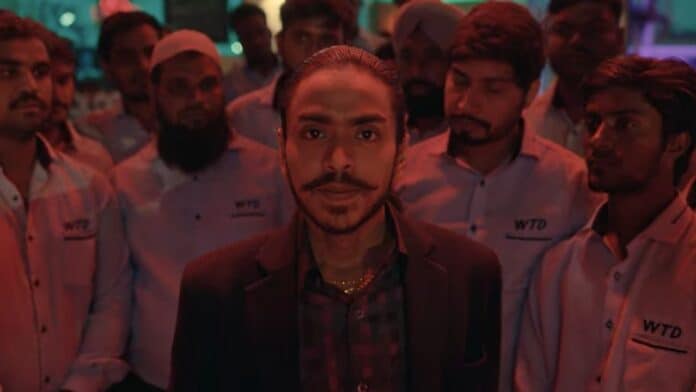Netflix’s crime-drama film ‘The White Tiger’, helmed by Ramin Bahrani, is an adaptation of Aravind Adiga’s 2008 award-winning novel which shares the same name.
Balram Halwai (Adarsh Gourav) sees an excellent opportunity to get out of his village Laxmangarh by becoming a driver for his rich landlord’s son Ashok (Rajkummar Rao) and his wife Pinky Madam (Priyanka Chopra).
What follows is a journey of realisation and a thirst to escape his subservient fate. As his life begins to unravel, Balram’s actions quickly lose conscience as he starts to relate himself to a ‘White Tiger’, a rare anomaly of the species “that comes along once in every generation”.
Is Balram destined for a life of servitude? Or will he rise?
The White Tiger ending explained in detail:
Pinky Madam deserts Ashok
Overwhelmed by running over a child on the streets of Delhi and advised to let Balram take the fall for her, Pinky Madam is an emotional wreck and even attacks Ashok’s father in frustration.
Coupled with Ashok’s reluctance to move back to the US with her, she decides to flee the country without informing him. She asks Balram to drive her to the airport in the dark of the night and even gives him 9,300 rupees.
Ashok and Balram have an altercation due to the latter’s role in Pinky’s desertion. Ashok starts to drink heavily and his health deteriorates, but Balram takes it upon himself to comfort him.
In the backdrop, the servant has begun changing his ways. Balram gives invoices of fake repairs, sells petrol from Ashok’s cars to other drivers and starts picking and dropping paying customers at night to make more money.
Devouring the master
Balram’s metaphoric transformation into an animal is further aggravated when he overhears Ashok’s brother suggesting they find a replacement for him, reminding him he is just a dispensable servant.
Although Balram’s dishonest methods are earning him money, he feels it’s not enough, and that he is worth more. He sets his gaze on Ashok’s red bag.
Ashok’s coal business thrived on the fact that he bribed ministers in Delhi and got away with paying taxes for mining the coal. His regular meetings with officials involved heavy sums of money as bribes carried around in the bag.
Balram contemplates stealing the bag to escape a life of subservience, even finding ways to convince himself it wouldn’t be theft to steal from a fraudulent businessman.
Amidst this, his family in Laxmangarh sends his nephew to him in Delhi with a letter threatening him to send money and forcibly get him married.
Crushed between his job hanging in the balance and threats from his family, Balram believes he has no other choice but to steal the bag, stating that people born in the light, like his master Ashok, had the choice to be good. However, men born in the coop, like him, did not have that choice.
To escape the coop, Balram forms a plan. He breaks a bottle made of glass to use as a weapon and stores it in Ashok’s car.
While driving him to give bribe to the newly-elected party led by The Great Socialist, he acts as if there’s an issue with the car’s tyre, taking the broken bottle out and keeping it on the ground.
Amid heavy rain, he asks Ashok to come out and inspect the tyre with him, subsequently slaughtering him with the glass and escaping with the bag.
The White Tiger breaks free from the cage
Post the murder, Balram flees to Bangalore, the city which Ashok had claimed to be the future of India.
Although wanted for murder, Balram says the police never quite managed to find him because his face was similar to half the men in country.
With the stolen money, Balram bribes the city’s police to arrest all call centre drivers for expired licences, eliminating the competition and paving way for his own business to thrive: White Tiger drivers.
With 30 drivers working in shifts with 26 vehicles, Balram’s business and bank holdings raise his net worth to 15 times the amount he stole from Ashok. He even takes on the alias of ‘Ashok Sharma’ to hide his true identity.
With his new business, he makes sure to take the blame for his drivers’ accidents and compensate the victims’ family, a reaction to his masters’ willingness to frame him for their mistake.
Balram confesses that he does miss Ashok, and that he did not deserve his fate. He is also unaware of his family’s fate, who could have been killed by Ashok’s family as revenge.
The entire story is Balram’s narration to visiting Chinese premier Wen Jiabao through Email, whom he finally meets at the end, but Jiabao doesn’t initiate conversation.
Nonetheless, Balram believes it’s the era of the Asians as he proclaims: “It’s the century of the brown man and the yellow man, and God save everybody else.”
At the climax, Balram says he doesn’t regret his actions, and that it was worthwhile to know, even for a day, an hour or a minute, what it meant not to be a servant.
Balram turns to his drivers and ridicules Hindi films where the killer is tormented by guilt. He says that the real nightmare is where you failed to kill your master and you are still a servant.
Breaking the fourth wall, Balram claims to have ‘switched sides’, from darkness to light, from poor to rich. He exits with the words: “I’ve made it, I’ve broken out of the coop,” as his drivers look on.
Looking for the smashing song at the end of The White Tiger? We have you covered:

